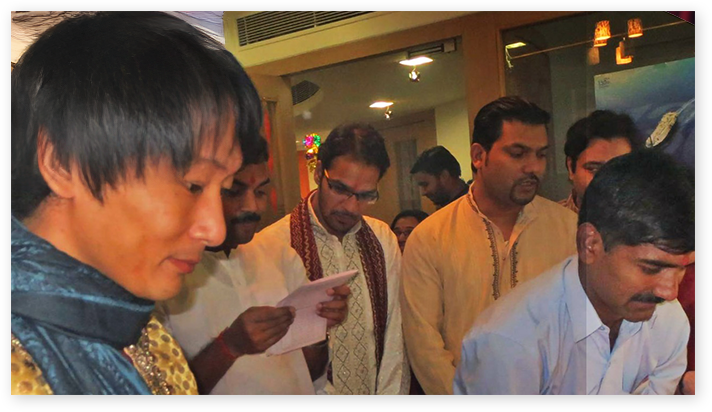The Story of
Yoshihiro Hiraki
A Quiet Beginning

I joined MOL in 2005. Back then, I was simply learning the ropes of safety and discipline. I never imagined India would become a recurring teacher throughout my career. My second assignment, with the Seafarer Group in the Marine Safety Division, grounded me in precision and responsibility — a foundation that would shape all the chapters of my later relationship with India.
What India Taught Me About Leadership
While working with the India Energy team in the LNC Carrier Division,
projects were complex and negotiations often demanding.
From those experiences, I learned three things:

To fully and accurately grasp the hard rules.
To look beyond my own scope and understand adjacent teams.
To recognize that negotiation styles differ between India and Japan.
People often seek simple, black-and-white answers. But what is truly simple rarely becomes the subject of serious debate.
To me, leadership is about navigating uncertainty, finding a way forward, and building logic that others can trust.
Lessons from
Japan

As projects grew more complex, I tried not to cling to my own position. Instead, I kept asking myself:
What will actually move us forward? Where is the bottleneck when we see the whole picture?
If I could leave one lesson behind, it would be that mindset.

The Value That Connects Japan and India


It may be presumptuous for me to speak on behalf of MOL, but I believe the reason we’ve endured for more than 140 years
is that honesty is part of our DNA.
At times, MOL may seem awkward, but the reason we can do business in India is not quick tricks — it’s the
absence of any gap between what we say and what we do.
A Closing
Reflection
The Regional Strategy has made access to head-office information more open, and AI is lowering the barriers to entering new fields. I encourage everyone to take an interest not only in their own area, but also in what their colleagues are doing. By doing so, we each rediscover the meaning of our own role.




